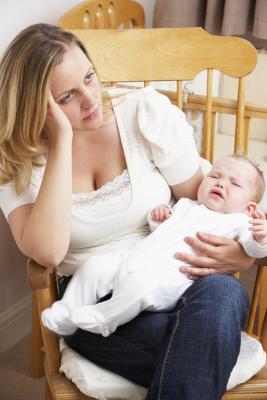You’ve made the decision to adopt a child, and the day finally arrives when you bring the new family member home. The last feeling you expect to have is depression, but this happens to some women after they adopt. The idealized version in your head doesn’t always match reality and the demands of the new lifestyle you now have.
The Letdown
Many parents build up the excitement of adopting so much that sometime after the adoption, depression sets in, says Laurie Tarkan in an article she wrote for “The New York Times.” Psychologists call this condition “post-adoption depression,” says Tarkan. This depression ranges from feeling a little down to downright despair.
Lack of Understanding
Adoptive moms tend to hide this depression. Bio moms feel bad enough when they experience this; although most people recognize the phenomenon and call this the “baby blues.” But adoptive moms, because they chose this lifestyle, feel shame for not being completely happy, especially after working so hard for this adoption. Although experts in the field know this condition exists, says Tarkan, adoption agencies don’t typically address the issue, nor does the general public understand it. After all, there is no blaming your hormones for the condition. However, that doesn’t make your feelings any less valid. According to a 1999 survey conducted by Harriet McCarthy and reported by Tarkan, parents report having post-adoptive depression that lasts from two months to more than a year.
Reasons
What puts parents at risk for depression after adoption is sleep deprivation, a lack of support and understanding about the adoptive process from others, round-the clock demands and feelings of isolation. Adoptive moms can also feel guilt about not feeling immediate love for the adopted child, which is an unfair comparison. A baby starts bonding with his mother as a fetus in the womb by hearing the mother’s voice and experiencing her biological rhythms, according to Michael. F. McGinn in the textbook “Theoretical Issues in Adoption.” Many moms feel devastated when this love doesn’t come. This can happen on the part of the adoptive child as well. Older children, especially, have a more difficult time forming a bond with adoptive parents.
What You Can Do
It should help you when you realize that you are not alone. Post-adoptive depression is real. Feeling this way doesn’t mean you’ve made a bad decision or are a bad parent. June Bond from the Roots and Wings Foundation, an organization that assists disadvantaged youth, suggested on Adopting.org, that you join an infant parenting seminar at your hospital. This can give you the confidence you need to care for your new baby. You can also join an adoption support group.
Signs of Depression
Your depression may be serious enough that you should contact a professional, according to the BabyCenter. Signs of depression are a loss of interest in being around people, feeling like crying all the time, difficulty concentrating, fatigue, difficulty sleeping, changes in weight, excessive guilt, feeling hopeless, loss of enjoyment, irritability and thoughts of suicide. If you have several of these symptoms, seek professional help.





